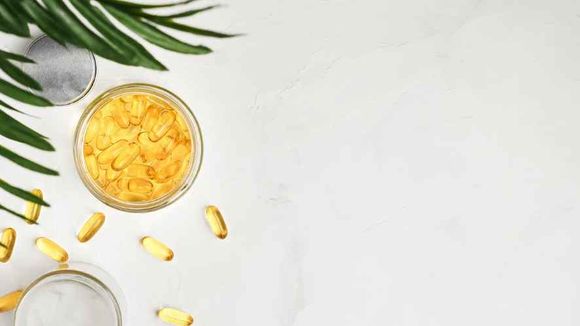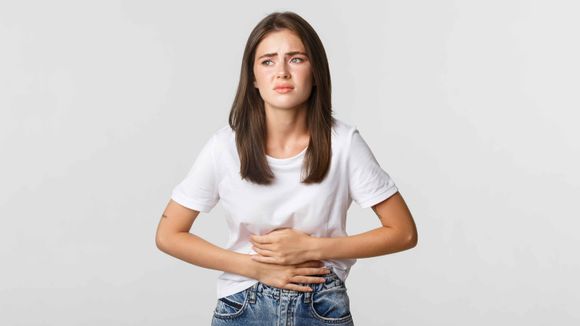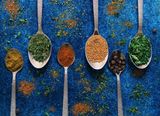What is Crohn's disease?
Crohn's disease, also called regional enteritis or ileitis, is a lifelong form of inflammatory bowel disease (IBD). The condition inflames and irritates the digestive tract - in particular, the small and large intestines. Crohn's disease can cause diarrhea and stomach cramps as the most common manifestations. It is customary to have periodic exacerbations of the disease with periods of lull in which there are no symptoms. [ref. 1]
Crohn's disease gets its name from the American gastroenterologist Dr. Burrill Crohn (1884-1983). He was one of the first doctors to describe the disease in 1932. Ulcerative colitis is another commonly diagnosed inflammatory bowel disease.
Who can develop Crohn's disease?
Crohn's disease usually occurs in younger people often in their late teens, 20s or early 30s. However, this condition can develop at any age. According to knowledge, it is equally common in men and women.
What are the variations of Crohn's disease?
There are six varieties of Crohn's disease, all based on which part of the digestive system they affect. Here is the classification:
- Gastroduodenal Crohn's disease. This unusual condition mainly affects the stomach and duodenum, which is the first part of the small intestine.
- Yeiunoileit. This type is found in the second part of the intestine, called the jejunum (empty intestine). Like gastroduodenal Crohn's disease, this variation is less frequent.
- Ileith. Ileitis involves inflammation in the latter part of the small intestine or ileum.
- Ileocolitis. This affects the ileum and colon and is the most common variation of Crohn's disease.
- Crohn's Colit. This species affects only the large intestine. Both ulcerative colitis and Crohn's colitis affect only the colon, but Crohn's colitis can affect the deeper layers of the intestinal mucosa.
- Perianal disease. This often includes the appearance of fistulas or abnormal connections between tissues, deep tissue infections, as well as wounds and ulcers on the outer skin around the anus.
What causes Crohn's disease?
There is no specific known cause of Crohn's disease. However, some factors may increase the risk of developing the disease, including [ref. 2]
- Autoimmune disease: Bacteria in the digestive tract can cause your body's immune system to attack your healthy cells. This means triggering an autoimmune process and developing an autoimmune disease that gives rise to systemic inflammation in the body;
- Genes: Inflammatory bowel disease often occurs in families. If you have a parent, sibling, or other family member with Crohn's disease, you may be at increased risk of developing the disease. There are several specific mutations (changes) in genes that may predispose people to developing Crohn's disease.
- Smoking - Smokers may have a higher risk of Crohn's disease than non-smokers.
What are the symptoms of Crohn's disease?
People with Crohn's disease may experience periods of severe exacerbations followed by periods of absence or very mild symptoms (remission). Remission can last for weeks or even years. There is no way to predict when exacerbations will occur, except by controlling the intake of certain foods and medications. Of course, stress reduction and smoking are two more methods to avoid potential illnesses and protect against compromise of the immune system, in which Crohn's disease can develop.
Symptoms of this health problem may include:
- Pain in the abdomen
- Chronic diarrhea
- Feeling of heaviness in the stomach
- High temperature
- Loss of appetite
- Attenuation
- Unusual scars on the skin (usually on the buttocks)
- fissures
- fistulas
- Rectal bleeding
How is Crohn's disease managed or treated?
Treatment for Crohn's disease varies depending on what causes the symptoms and how severe they are. In any case, the goal of treatment is to induce remission (the time between symptom exacerbations), maintain remission, and manage any complications of Crohn's disease over time. [ref. 3]
To this end, one or more of these treatments for Crohn's disease may be recommended by healthcare professionals:
- Antidiarrhea drugs
- Antibiotics
- Biologic drugs - include monoclonal antibodies to suppress the immune response
- Healing fasting
- Corticosteroids
- Immunomodulators and others
Natural remedies for Crohn's disease
"For every pain there is an herb," said an unknown author. So do we, as well as many researchers who are looking at the use of phytotherapeutic and other alternative agents in various diseases, including Crohn's disease. [ref. 4]
Some people use complementary and alternative medicine to achieve some relief from the symptoms of various conditions and ailments that are otherwise possible with medications, but at the cost of unpleasant side effects.
Some alternative forms of treatment that can be used for Crohn's disease include:
- Probiotics. These are living and beneficial bacteria that help restore balance in the intestinal tract. Probiotics can also help prevent microorganisms from disrupting the gut's natural balance and causing a Crohn's attack. Scientific data on the effectiveness of specific probiotic strains are still limited, with purported benefits of Lactobacillus rhamnosus and Bifidobacterium longum. [ref. 5]
- Prebiotics. These are potentially beneficial substances found in plants, such as asparagus, bananas, artichokes, and leeks, which are actually the food of the good bacteria in the gut.
- Fish oil. Fish oil is rich in omega-3 fats, which have anti-inflammatory effects. According to a 2017 study, research is ongoing regarding the possible treatment of Crohn's disease using omega-3. 6 Fatty fish such as salmon and mackerel are rich in omega-3s, and another meto provide these beneficial fats is through fish oil supplements. It is important that it has the most pure and unprocessed composition, as well as that it is of certified origin, so that it is not subject to rancidity.
- Acupuncture. This is the practice of precisely inserting needles into the skin to stimulate different points on the body. A 2014 study found that acupuncture combined with moxibustion a type of traditional Chinese medicine that involves burning dried medicinal herbs on or near your skin improved symptoms of Crohn's disease. More research is needed in this direction to confirm the effects.










